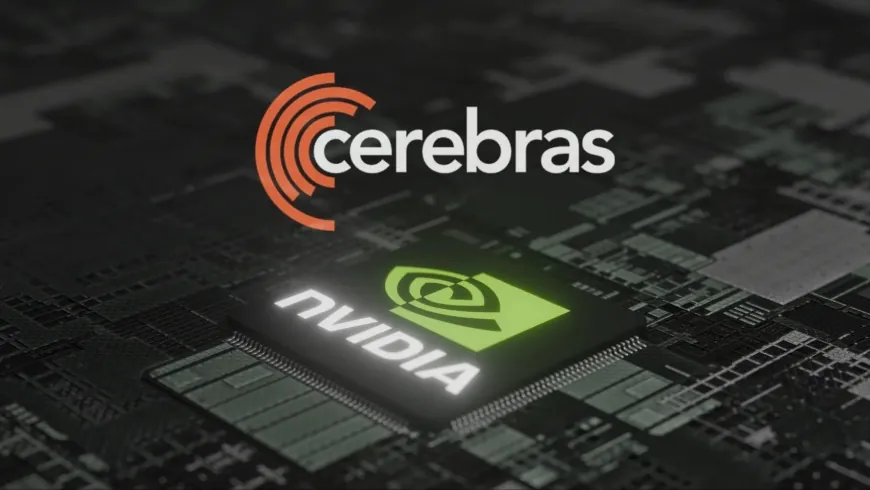Cerebras Says Its New Chip Could Be 20x Faster Than Nvidia
Chipmaker Cerebras claims its new wafer-size processor runs major computing tasks up to 20 times faster than Nvidia’s hardware.

Key Points
Cerebras Systems, a semiconductor company based in California, has introduced a processor that it says can complete model training and other large computing workloads up to 20 times faster than Nvidia’s chips. The claim comes as Nvidia maintains a dominant position in the high-performance processor market.
Cerebras said the processor, called the Wafer Scale Engine, is designed for large-scale computing systems used in research centers and industrial data facilities. The company described the product as a step toward reducing the cost and power required to train complex computational models.
Single-Wafer Processor Replaces Multi-Chip Design
In most data centers, performance depends on thousands of small processors connected through high-speed networks. Each processor exchanges information with others, which increases delay and raises energy requirements.
Cerebras has taken a different approach. Its new processor uses an entire silicon wafer as one continuous computing unit. The wafer contains hundreds of thousands of processing cores connected internally, allowing data to move across the surface without traveling through external cables.
According to the company, this structure eliminates the communication time between separate chips and reduces the power needed to transfer information. It also allows the entire system to fit within a single server rack instead of large clusters of processors.
Production Challenges May Limit Output
Producing a chip that covers a full wafer presents significant technical risks. Semiconductor yields generally fall as chip size increases, since a minor defect in one area can damage an entire wafer. Analysts say this could limit production efficiency and make the chips expensive to manufacture.
Cerebras has not released detailed performance data verified by independent testing. Industry analysts expect further information before assessing whether the company’s speed and power claims hold under commercial workloads.
Nvidia’s Market Advantage Remains Substantial
Nvidia continues to dominate the data-center processor market. The company’s products are widely used by cloud-service providers, research institutions, and industrial automation firms. Beyond hardware, Nvidia offers proprietary software tools that have become central to system development and optimization.
These software tools make it difficult for new manufacturers to replace Nvidia hardware. Many systems are designed and coded around Nvidia’s framework, which creates a high cost for switching to alternative platforms.
Industry Growth Creates Space for New Entrants
The overall market for advanced processors continues to expand as companies invest in computing capacity and automation. Industry reports project steady growth in demand for chips optimized for large data workloads.
That expansion leaves room for smaller manufacturers that focus on efficiency or specialized computing functions. Alphabet has developed its own processors for internal use, and other firms are pursuing customized chips for technical and industrial applications. Cerebras may compete in segments that prioritize energy savings and compact deployment over existing software compatibility.
Cerebras Funding and Market Status
Cerebras had prepared documents for a possible public offering but postponed the plan after closing a $1.1 billion funding round. The company said the additional capital would be used to expand production and build partnerships with technology customers.
The company remains privately held. Access to its shares is currently limited to venture capital funds and private investors. For public investors, exposure to the processor market remains through companies such as Nvidia (NASDAQ: NVDA), Advanced Micro Devices (NASDAQ: AMD), Taiwan Semiconductor Manufacturing (NYSE: TSM), Broadcom (NASDAQ: AVGO), and Micron Technology (NASDAQ: MU).
Cerebras Awaits Independent Testing Results
Cerebras said the new processor is now being supplied to selected research and industry partners for evaluation. Independent testing data has not yet been released.
Analysts following the semiconductor sector said the company’s performance claims will draw interest once verified results are published. Nvidia did not issue a statement regarding the announcement.

































































